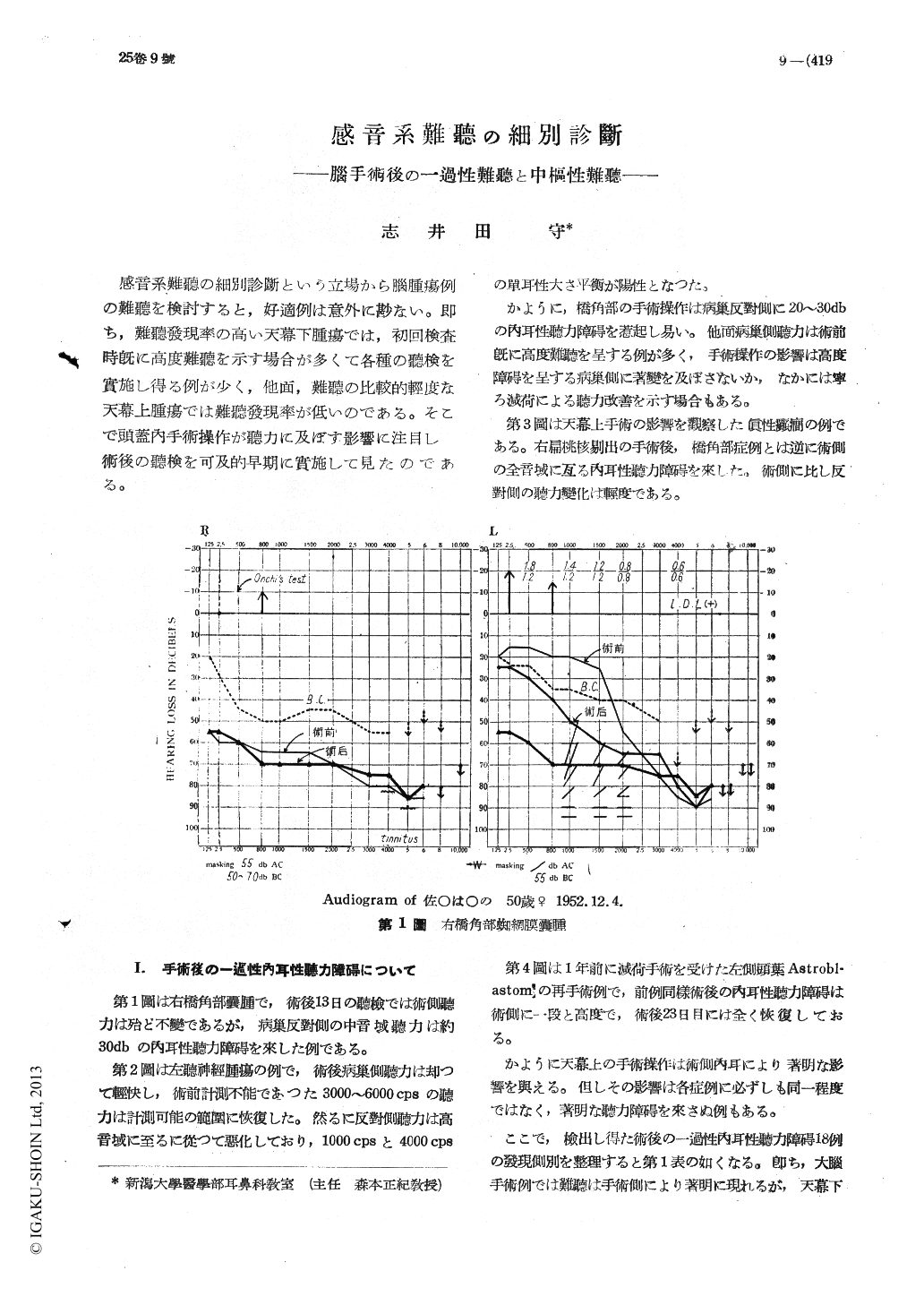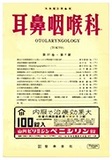- 有料閲覧
- 文献概要
- 1ページ目
要約
1)頭蓋内手術後には屡々一過性内耳性聴力障碍が現れるが,これは手術操作とその反應による内耳の血行異當に基づくものと老えられる。
2)内耳性難聽と所見の全く相反する中枢性聡力障碍例を剔發し,閾値上聽力の悪化が闘値變動に先行する例を報告した。
3)中枢性聽力障碍發現の側別に關聯して聽覺経路の交叉・非交叉兩線維の機能的價値の問題を論じ,中枢障碍の代償の可能性に關して考察した。
4)聽力像よりする末梢神經障碍と中枢障碍の鑑別は,聽力像の推移を追求して始めて可能となるのであろう。
5)脳腫瘍例を含めて一般に後迷路障碍では内耳性・中枢性兩難聽の中間型を呈する場合が多くて,典型的な中枢性難聽はむしろ稀である。
6)以上の事實から,感音系障碍の聽力像の判定こ際しては,内耳・中枢兩要素の比重を考慮すべきであろう。
稿を終るに當り,御指導と御校閲を賜つた森本教授に深甚な謝意を表します。
本研究は文部省科學研究費の支辨に侯つ處があつた。
SHIIDA Transitory inner ear deafness is a condition quite frequently met with as after effects of intracranial operation. This symptom appears to be the result of circulatory distur-bances that may be imposed at the time of operation and, also, as a part of general bodily reaction thereto. A case is reported in whom it is found that there was a change in hearing thresholds that preceded the onset of lowering of hearing capacity presenting a state of nerve center hearing loss which is essentially diffe-rent from that of inner ear deafness. In con-nection to the diagnosis of nerve center hearing loss the question is discussed as to whether there is any difference in the functional capa-city of the fibers of the acoustic nerve some of which decussate while others do not. Probability of manifestation of compensatory hearing in nerve center hearing loss is also considered. It is found that in making the diagnosis whether the hearing loss is due to lesion that may be peripheral or central in the nervous system by means of an audiometer the examination should be necessarily a repea-ted one. Vestibular disturbances in general which include those that may be derived from brain tumors seems to manifest a type of hearing that appears to be lying in a position intermediary between nerve deafness and that of the nerve center; a pure nerve-center type of deafness is rarely encountered. It follows, therefore, that in making a proper diagnosis of perception deafness by means of audiograms, it is essential that factors which constitute and represent the inner ear and the nerve-center should be well considered and symptom mani-festations based upon these factors should be balanced against each other to find whichever that may be predominating.

Copyright © 1953, Igaku-Shoin Ltd. All rights reserved.


